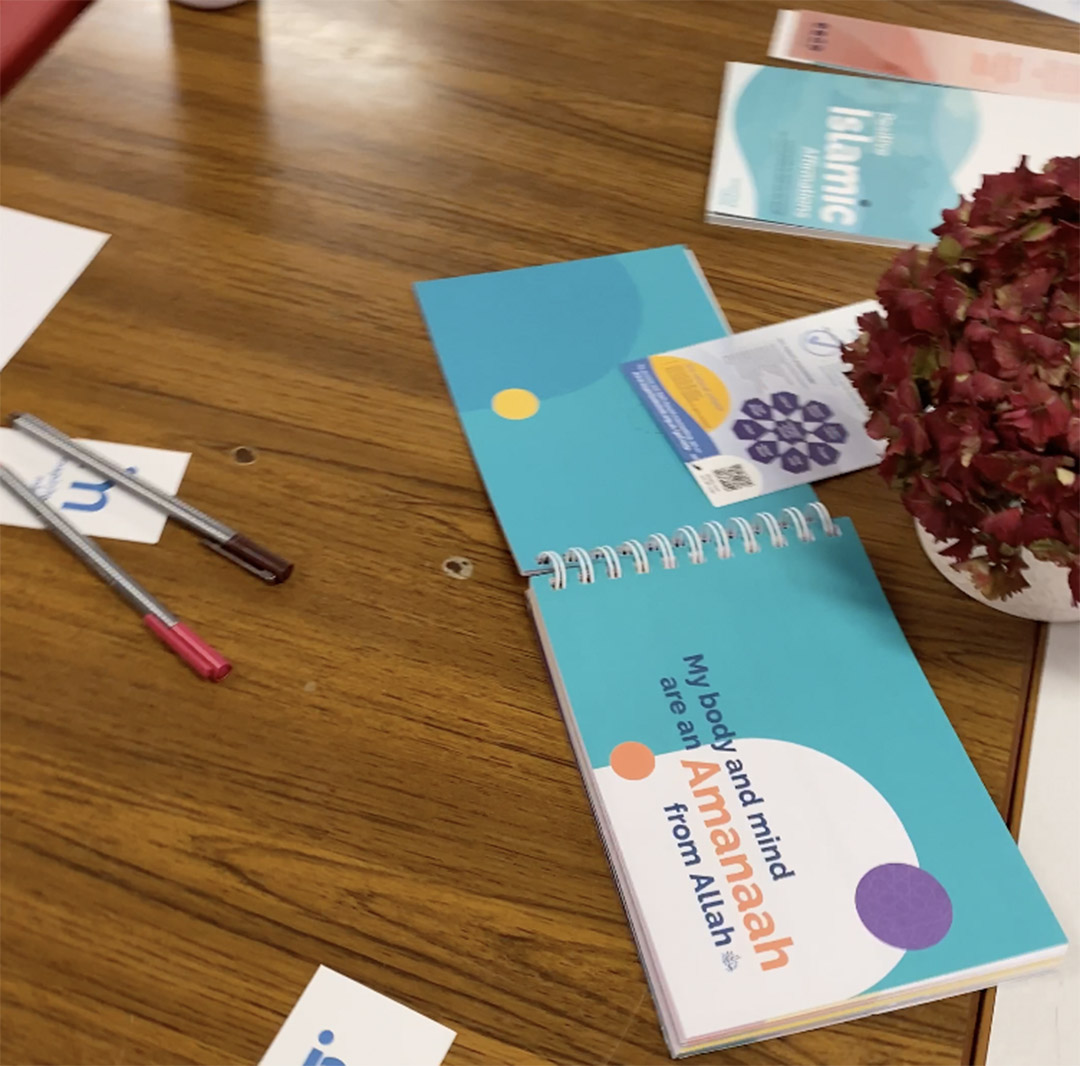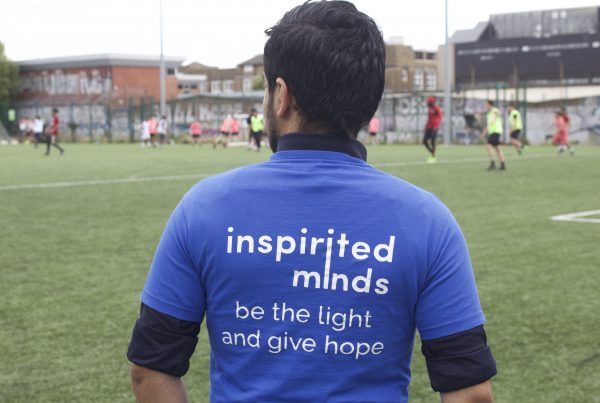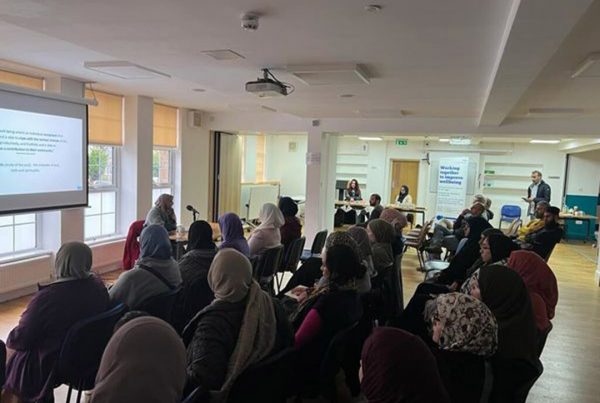The Islam, Mental Health + Wellbeing event for Exeter Community Charity Week was meaningful and well received. Attendees were encouraged to reflect on well known ayaat/ahadith from a different perspective, think deeply about the signs Allah tell us about in the Quran and explore what self-care means to them as Muslims in the West.
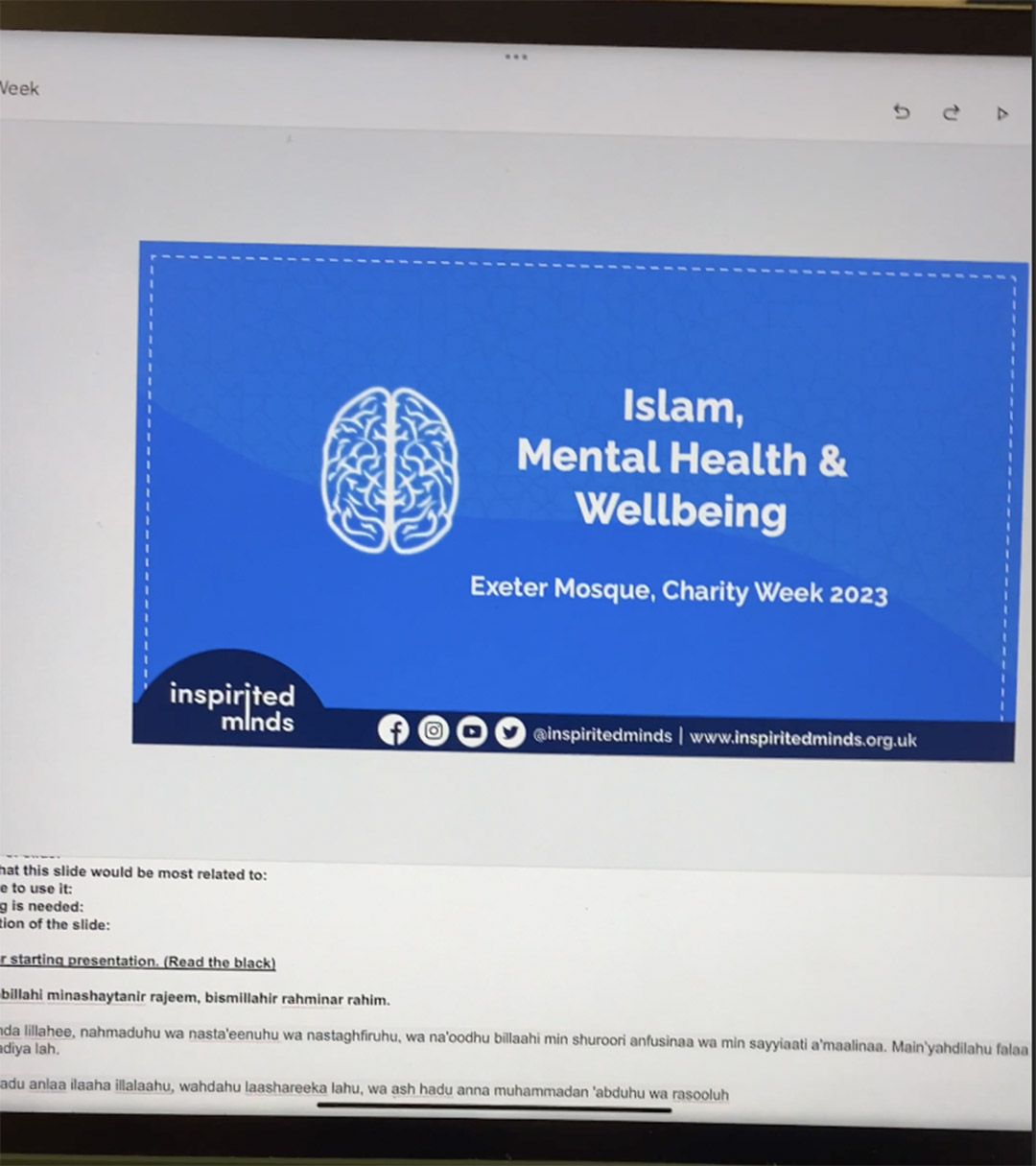
Exeter Community Charity Week included many successful events, one of them included hosting Inspirited Minds for a talk on Islam, Mental Health and Wellbeing, with a focus on Charity Week’s theme: Nature. The talk was then followed by an crafts activity which enabled the sisters who attended to let their creative sides flow and connect differently with the signs that Allah has provided us with.
Meanha opened the talk by inviting the attendees to think about Allah’s name Al-Waliyy, The Helping Friend, and connecting with an associated ayah. She then went on to ask what the attendees thought mental health was, and discussed why it is so important in Islam. The conversation flowed really well and engagement was high when Islamic Self-Care was discussed, particularly as Muslims in the West.
After a short break, Meanha moved onto the importance of shifting perspective and utilised ayaat about the world that Allah regards to as signs and how He uses metaphors for us to connect with on a deeper level. One ayaat that was discussed in great detail with questions to prompt conversation was:
“And He is the One Who sends down rain from the sky in perfect measure, with which We give life to a lifeless land. And so will you be brought forth from the grave.”
- Why is Allah telling us about the rain?
- What can we learn about lifeless land?
- Why did Allah make the comparison of land to grave?
After this, a brief history of mental health in the Muslim world was spoken about to highlight that conversations around mental health are not new to the Muslim community and that Islam in itself is self-care. Finally, the dua for grief and stress was shared, followed by help and parting words from the Prophet (ﷺ):
“Know that there is much good in being patient with what you hate, victory will come with patience, affliction will come with relief, and hardship will come with ease” [Ahmed].
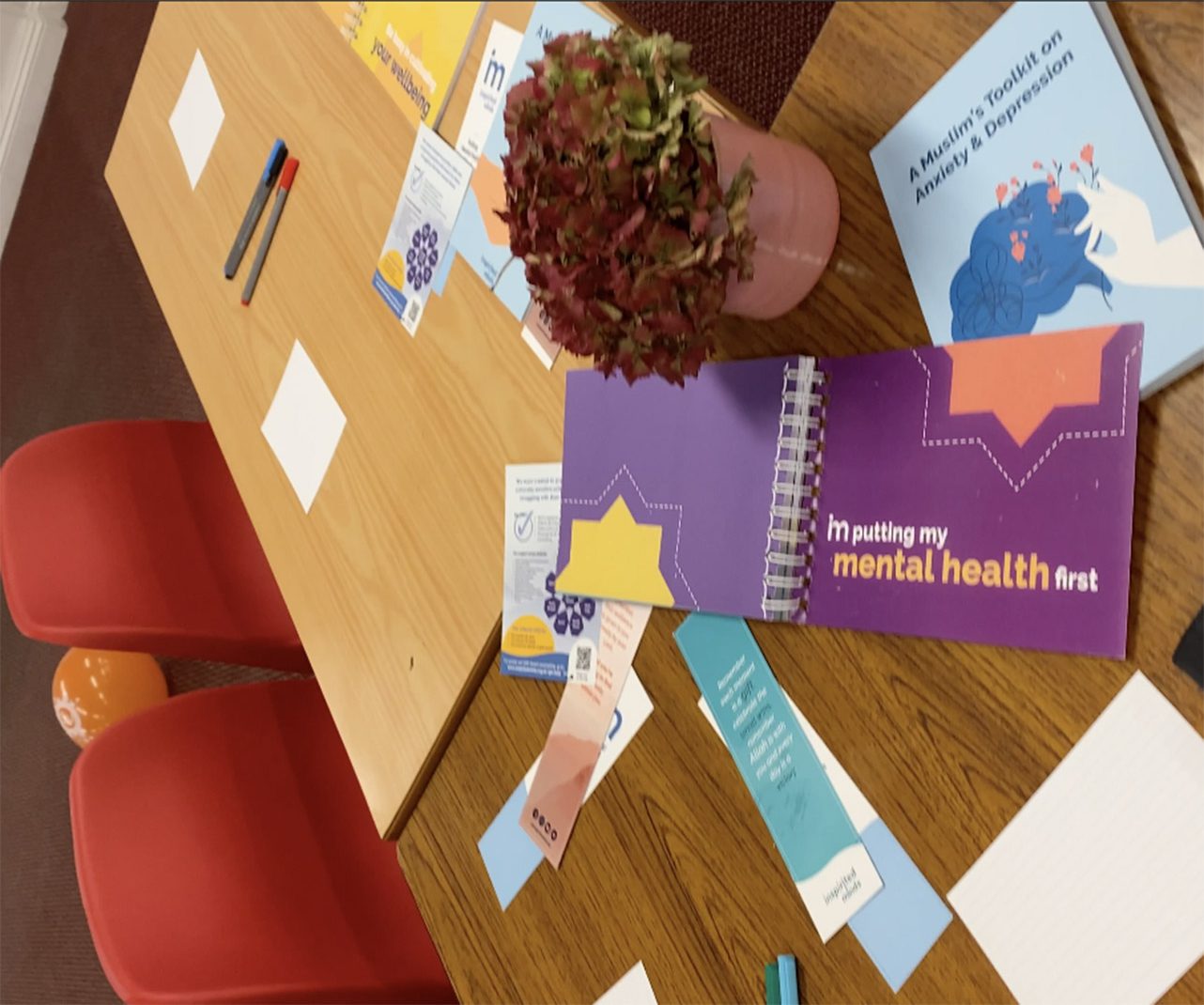
What attendees said:
- “I really enjoyed the interactive aspect of it, I was able to put forward my own ideas and have an open discussion about it whilst also getting advice.”
- “Lots of clear examples of how mental health and wellbeing is important in Islam and practical solutions on how to tackle mental health issues.”
- “I loved the fact that there was leaflets highlighting key issues. Structure was very good. Picked out ayahs of quran and gave their significance and related it back to the topic. Very warm and friendly workshop lead, so the meaning and message was put in a clear and easy to understand manner.”
Highlights from this workshop:
- Remember everything in life is a test, and when we start to see tests as challenges to overcome, or as a means to get closer to Him, or even lessons to be learnt from, it can become more manageable, more practical and solution focused.
- Islam is a self-preserving religion – everything Allah has told us to do, is for our own benefit. Therefore, acts of Ibadah promote aafiyah! Additionally, Islamic self-care doesn’t stop at the self like western self-care promotes, we are a religion that promotes community and social responsibility. Ensure your Islamic self-care is holistic so that it looks after you and those around you.
- We were given Prophets and Messengers, who were humans, in order to relate to them. Their experiences and stories should be accessible to us, and we should look to the lessons their lives can give us and how we can apply them to our own situations.
- Connect with Allah in a meaningful and personal way. He has 99 names and associated attributes – which of them has most meaning to you? This can even change in different situations. Get to know Allah more.
- “[And] who created seven heavens in layers.1 You do not see in the creation of the Most Merciful any inconsistency. So return [your] vision [to the sky]; do you see any breaks” [Qur’an 67:3] – Look to the Quran for inspiration, awe, motivation, connection, comfort, company and so much more!
If you are going through a difficult time and are experiencing anything relevant to the above mentioned topic, then feel free to contact our support service including counselling. For further information please visit: Get Help
If you would like to get involved in raising awareness about mental health in your local community, we are looking to grow our outreach team to different cities around the country. We will ensure that you are fully trained and confident before running workshops & talks.
Please visit our website for more information: Vacancies

